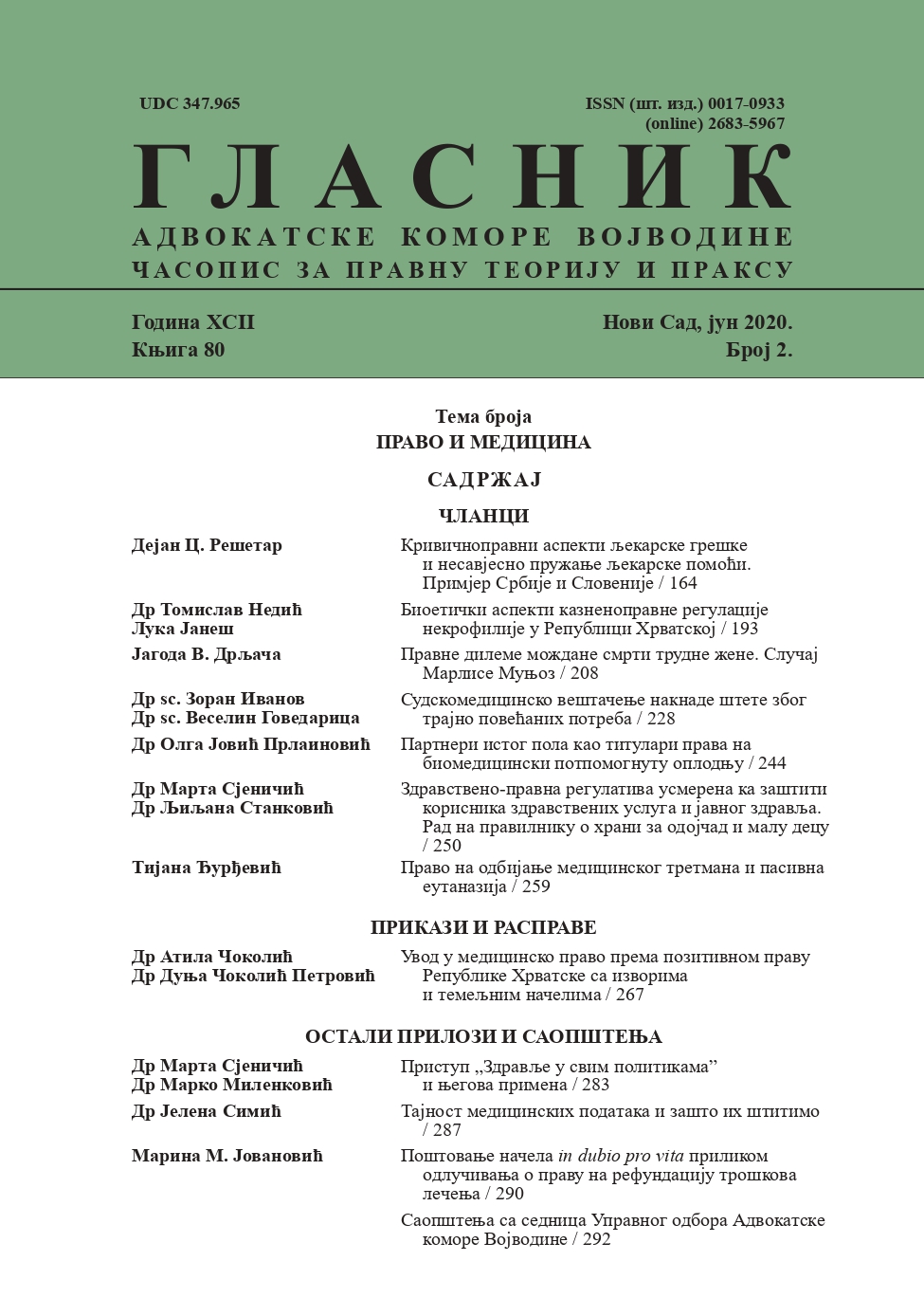ПРАВНЕ ДИЛЕМЕ МОЖДАНЕ СМРТИ ТРУДНЕ ЖЕНЕ
LEGAL DILEMMAS OF MATERNAL BRAIN DEATH
The Case of Marlise Muñoz
Author(s): Jagoda DrljačaSubject(s): Human Rights and Humanitarian Law, Ethics / Practical Philosophy
Published by: Advokatska komora Vojvodine
Keywords: brain death; advance directives; pregnant woman; dignified death; Texas Advance Directives Act (TADA)
Summary/Abstract: The subject of this article is a case that occurred in Texas in 2013, which has caused great debate between medical and legal professionals, and has stirred public concern. Marlise Munoz, 14 weeks pregnant, suffered a massive pulmonary embolism which resulted in brain death. Marlise’s will had been that in the case of irreversible brain damage, doctors don’t somatically support her. Despite Marlise’s will, as announced by her husband Eric, and confirmed by her parents, doctors decided to keep her on artificial life support until delivery, or while the fetus is viable. The reason for this decision had been found in the Texas Advance Directives Act (TADA). The main problem with this regulation and interpretation thus set is the collision between the rights of the individual who has made a decision about their physical integrity and the right of the fetus to continue to develop. In this case, no account was taken of the brain anomalies and damages that the fetus would suffer, developing from week 14 inside a brain-dead mother on life-support. The aim of this research is to analyze advance directives, whether the regulations derogate a living will when the patient is a pregnant woman, and the justification for the derogation, with special reference to the controversial TADA. In the concluding considerations, I will analyze which legal and ethical dilemmas arise in these cases.
Journal: ГЛАСНИК АДВОКAТСКЕ КОМОРЕ ВОЈВОДИНЕ - часопис за правну теорију и праксу
- Issue Year: 80/2020
- Issue No: 2
- Page Range: 208-227
- Page Count: 20
- Language: Serbian

